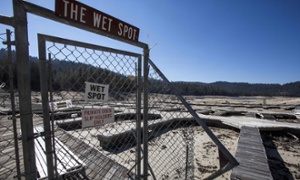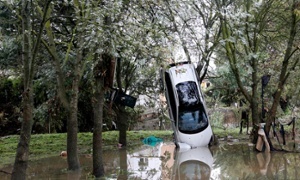 |
| Reviews and Templates for Expression We |
No more beer, chocolate or coffee: how climate change could ruin your weekend
Running dry … drought brings historically low water levels to Huntington Lake, California in 2014. Photograph: Ringo Chiu/Corbis
By: Karl Mathiesen
|
|
|
|
Copyright 2011 Energy and Technical Services Ltd. All Rights Reserved. Energyts.com |


